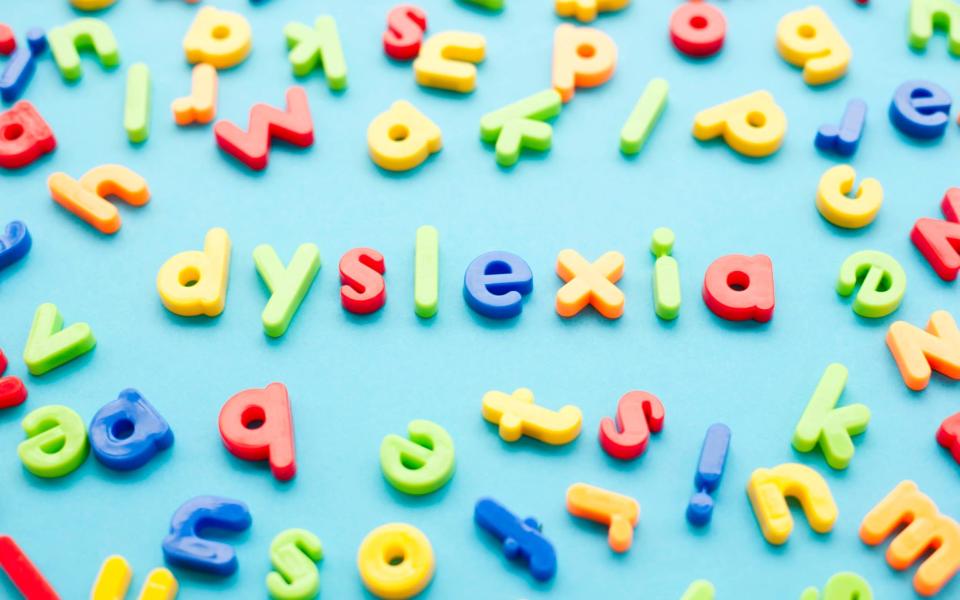Why dyslexia is not a ‘disorder’ but an evolutionary advantage

Dyslexia is not a “disorder” but an evolutionary advantage that makes people more willing to explore, scientists have said.
The experts suggested that dyslexia, which causes difficulty reading, writing and spelling, is a useful specialisation and not a “neurocognitive condition”.
Non-dyslexics are better at using knowledge and exploiting what is already there while dyslexic people have a particular knack for tackling the unknown with gusto.
And in the days before literacy, this penchant for adventure would have been invaluable in helping societies adapt and thrive.
About one in five people have dyslexia, and their tendency to push the envelope would have been balanced out by other members of a prehistoric society, leading to a well-rounded group with equally useful skill sets.
However, Dr Helen Taylor, from the University of Strathclyde, and Dr Martin Vestergaard, from the University of Cambridge, said that dyslexia was now seen as a problem because modern education systems focused on the things sufferers struggled with and neglected what they excelled at.
They reassessed past studies on dyslexic individuals and disagreed with the prevailing theory that it was a cognitive deficit.

“Striking the balance between exploring for new opportunities and exploiting the benefits of a particular choice is key to adaptation and survival and underpins many of the decisions we make in our daily lives,” said Dr Taylor.
“Evidence strongly indicates that individuals with developmental dyslexia do not have a disorder but instead, are specialised in explorative cognitive search,” the researchers wrote in their paper, published in the journal Frontiers in Psychology.
However, since the invention of written language, dyslexia has been seen as a problem, not a talent.
“Schools, academic institutes and workplaces are not designed to make the most of explorative learning,” said Dr Taylor.
“We urgently need to start nurturing this way of thinking to allow humanity to continue to adapt and solve key challenges.”
They posit that dyslexic people are naturally more skilled “in realms like discovery, invention and creativity” and that this specialisation stems from millennia of human evolution.
In nature, if an individual has a specialisation that is beneficial, it will help them survive by making them better suited to their habitat, or “fitter”.
Therefore, the fastest and strongest people would succeed as hunters, for example, because they have a so-called fitness benefit.

The authors of the new paper said dyslexia may be a similar advantage as it allows people to be more flexible and able to make the most of new environments.
Without the streak of curiosity and willingness to investigate that is commonplace in dyslexic brains, groups of people would likely struggle to survive, they said.
“The deficit-centred view of dyslexia isn’t telling the whole story,” said Dr Taylor.
“We believe that the areas of difficulty experienced by people with dyslexia result from a cognitive trade-off between exploration of new information and exploitation of existing knowledge, with the upside being an explorative bias that could explain enhanced abilities observed in certain realms like discovery, invention and creativity.
“Considering this trade-off, an explorative specialisation in people with dyslexia could help explain why they have difficulties with tasks related to exploitation, such as reading and writing.
“It could also explain why people with dyslexia appear to gravitate towards certain professions that require exploration-related abilities, such as arts, architecture, engineering and entrepreneurship.”
Kate Griggs, the founder of the charity Made By Dyslexia, told The Telegraph: “We welcome this research and agree that dyslexia is a different and valuable way of thinking
“LinkedIn has just added ‘dyslexic thinking’ as an official skill, and Dictionary.com has included it in the dictionary. Our charity has produced free training for schools and the workplace to empower every dyslexic thinker.”

 money
money 